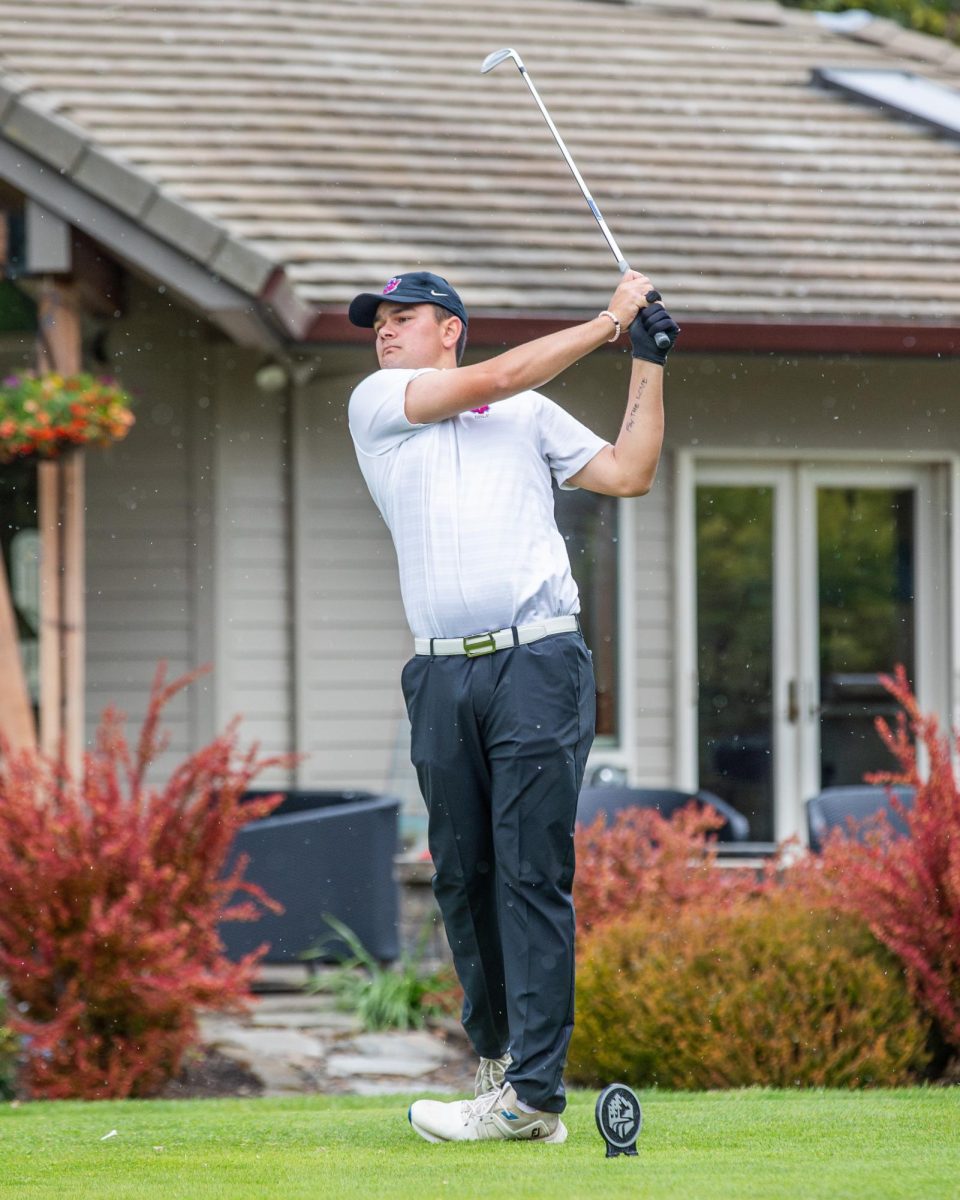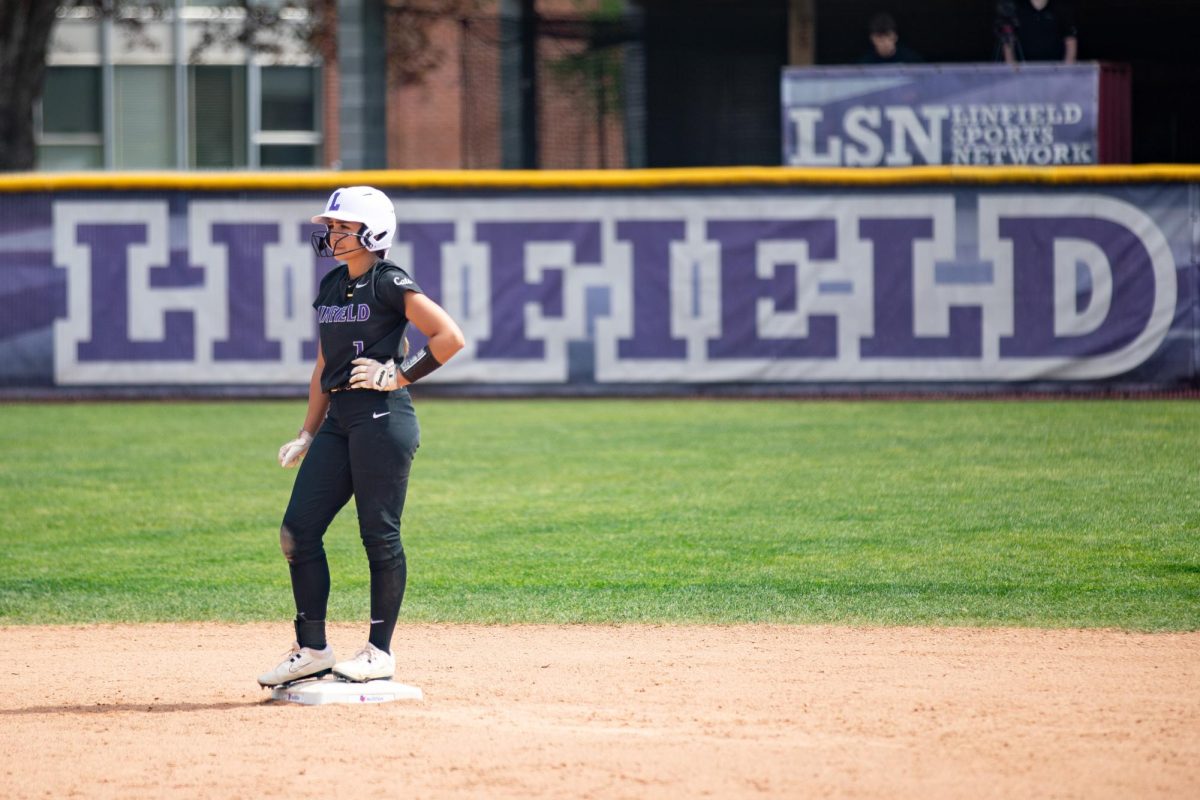Jordan Jacobo
Sports editor
When it comes to prioritizing athletics and academics at Linfield, administrators, coaches and athletes agree: The classroom comes first.
According to the college’s institutional self-study for accreditation, “[The] intercollegiate athletics program exists to further the college mission by striving for regional and national athletic excellence while maintaining high academic standards and upholding academic integrity among student athletes.”
While it may be a mouthful to say, the athletics program here looks to its coaches as proponents of this message. They monitor weeknight study table sessions, remind athletes to keep up with their homework and try to instill the sentiment that school should trump sports when the two are in conflict.
As a Division III school, Linfield is not allowed to offer any athletic scholarships, and so student-athletes must truly be students first.
“Obviously, academics come first,” athletic director Scott Carnahan said. “If students have a class or lab, it’s required that they go to that instead of practice.”
Carnahan added that all Northwest Conference schools monitor the number of classes athletes miss because of away games. Certain sports, football in particular, miss more days than others, but the priority is minimizing scheduling conflicts, he said.
When the men’s basketball team set its sights on achieving a 3.0 team grade point average this season, head coach Larry Doty said he thought it was funny.
“I kind of laughed about that, and I said, ‘You know guys, that’s down 0.2 points from last year,’” he said.
When you consider that the men’s basketball roster has 28 names, a 3.2 GPA is an impressive number, Doty added.
Part of the school-first mentality comes from the message that is reinforced frequently and from many angles. When student-athletes are recruited, the coaches make them well aware that they come here to be students first, athletes second.
“We try to get them to understand that athletics is a short-term deal,” Doty said. “Even though they are passionate about it and spend a lot of time training, it’s still going to be a small fraction of their lives.”
Senior Martha Inouye, an anthropology major and a defender on the women’s soccer team, has merged her two passions while at Linfield. Inouye is currently working on an anthropology project that examines team cohesion and role ambiguity on sports teams.
Inouye, who also competes in lacrosse in the spring, said she hasn’t felt the need to compromise between her responsibilities on the field and in the classroom.
“I think it’s just about setting your priorities, figuring out what you want and how much effort you are willing to put in,” she said. “Soccer and lacrosse are things that I love to do, so I make them a priority.”
Sophomore education major and wide receiver Mikey Lemon said that during football season, it can be a real test to find the time to
get schoolwork done. With practices running from 3-6 p.m., and with evening meetings ending at 9:30, homework at the end of an exhausting day can seem like a chore.
“We’re expected to get up and go to class every day,” Lemon said. “We’re trying to do a good job representing the football team. It’s been said that the only reason we’re good is because we only recruit athletes, but we’re trying to disprove that.”
The football team began its underclassmen workout regimen again this week, a testament to the notion that the season doesn’t mean the end of the commitment.
With 35 percent of men and 16 percent of women at Linfield participating in intercollegiate athletics, it is safe to say the goals of the athletic department are not far removed from those of the rest of the college.
“All students at Linfield College undergo the same admission, academic, degree and financial aid procedure and have equal access to institutional services,” the college’s self-study found. “No preference is given to student-athletes.”
Carnahan said the college has found that retention rates for freshmen who compete in athletics are better than those who do not. He added that the athletic department believes that student-athletes are able to learn from their experiences in competition and practice.
“We think athletics are a classroom,” Carnahan said. “They are learning success-based skills, learning how to get along with others. They learn things that they are going to use in everyday life: strong work ethic, integrity, playing within rules and dealing with adversity.”






